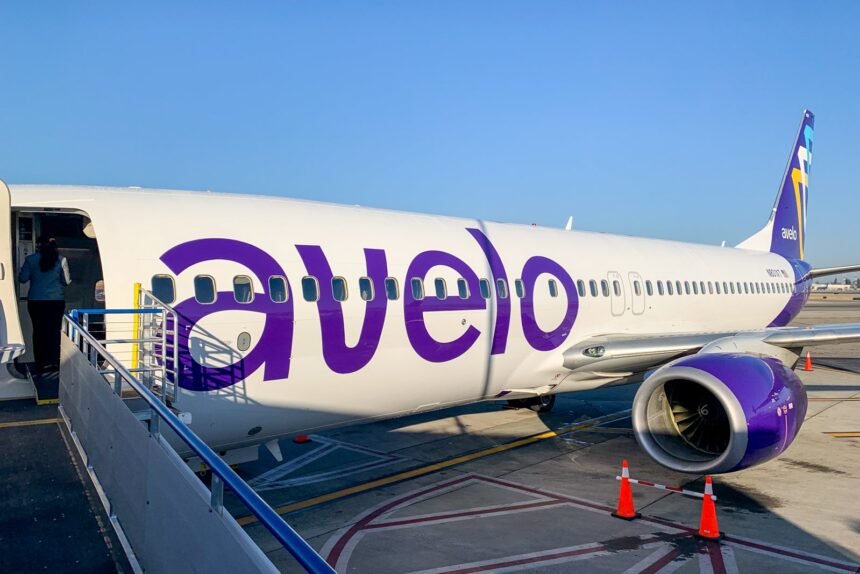Startup carrier Avelo Airlines said Thursday that it was profitable in the fourth quarter of 2023, a significant milestone as the new airline continues to grow and begins to look towards its next phase.
Avelo managed to eke the pre-tax profit for the quarter despite higher-than-expected fuel prices, the airline said, crediting its low-cost business model and cost structures.
Want more airline-specific news? Sign up for TPG’s free biweekly Aviation newsletter.
Although the airline still operated at a loss for the full year — typical for new companies as they launch and grow scale — the carrier said it brought in $265 million in revenue for the year, up by 74% compared to 2022.
The airline is on track to be profitable for the full year in 2024, CEO Andrew Levy said.
«Achieving our first profitable quarter is an exciting and significant milestone in Avelo’s journey,» Levy said in a statement. «As we approach Avelo’s third anniversary, I am very bullish about our future and the substantial opportunities ahead of us.»

Daily Newsletter
Reward your inbox with the TPG Daily newsletter
Join over 700,000 readers for breaking news, in-depth guides and exclusive deals from TPG’s experts
Avelo, one of two startup airlines to launch in 2021 ahead of the pandemic-era resurgence of travel demand, has expanded rapidly since it began flying. The airline flies more than 60 routes between more than 40 destinations out of six bases: Orlando International Airport (MCO), Raleigh-Durham International Airport (RDU) in North Carolina, Hollywood Burbank Airport (BUR) in California, Wilmington Airport (ILG) in Delaware, Tweed New Haven Airport (HVN) in Connecticut and Harry Reid International Airport (LAS) in Las Vegas, although the airline will shift that Las Vegas base to Santa Rosa’s Charles M. Schultz Sonoma County Airport (STS) in California.
The airline operates 16 Boeing 737 jets and expects to take delivery of five more this year. All of the aircraft are previously owned, and with about 1,000 employees, the airline maintains a ratio of roughly 63 employees per aircraft, significantly lower than mainline airlines (although higher than Frontier and Allegiant, which have roughly 53 and 48 employees per airplane, respectively, according to public information).
The quarterly profit contrasts with Breeze, the other ultra-low-cost startup airline that began flying in 2021.
Breeze appears to have lost hundreds of millions of dollars, according to filings with the Department of Transportation, as it’s rapidly expanded to more than 145 routes and purchased a fleet of brand-new Airbus A220-300 jets.
On Tuesday, Breeze founder David Neeleman — who also founded JetBlue — said he expects the airline to turn profitable this year.
«The transition line happened later than we anticipated,» Neeleman added. «We didn’t get as efficient as we could have, soon enough, but we’re getting to that point now and so we’re really pleased with the business.»
Related reading:






